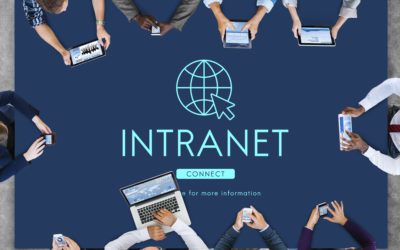Are you looking for a practical and flexible framework for building Trust?
LinkedIn Learning has you covered with Building Trust by Brenda Bailey-Hughes. This hour-long course is a powerful credibility-building primer with a healthy dose of remote work best practices.
Brenda cites three drivers of trustworthiness: competency, empathy, and authenticity, and provides practical tools for leaders and teams to prioritize (and activate) the right trust driver at the right time.
“Building Trust” was a walk down memory lane. I must have muttered I can’t believe I used to do that at least five times. That’s a good sign that modifications will ensue, along with new skills (and resolutions) for 2023.
Get ready to juggle competency, empathy, and authenticity. Your manager, colleagues, spouses, friends, and relatives will thank you.
#1 – Building Trust by Fixing Your Weakest Link
Since no one has equal levels of competency, empathy, and authenticity, building trust starts by fixing your weakest link.
Do you need a little help? Ask your colleagues and your manager for feedback. They’ll probably solicit your input as well. Giving and receiving outside perspectives helps everyone improve.
Like all MSPs, Integris is top-heavy with engineers and technical support staff: system and network engineers, vCIOs, vCISOs, cloud architects, Azure specialists, and project managers.
Their technical competency is a given. So there’s an ongoing initiative to balance the proverbial legs of the three-leg stool. An engineer with server virtualization competencies and authenticity needs empathy to communicate with non-technical audiences diplomatically.
An Extreme Example from the Early 2000s
Played by Jimmy Fallon on Saturday Night Live, Nick Burns, “Your Company’s Computer Guy” is snarky, judgmental, and rude.
With a tact deficit of this magnitude, Nick would never get past a 15-minute phone screening interview with any company or MSP today.
The sketch was on point back in the day because his character fit a prevalent and relatable stereotype. Twenty years ago, IT was less user-friendly, and technical support personnel had to do a lot of babysitting.
If Brenda Bailey-Hughes had any empathy development advice for people like Nick, it would be as follows:
- Convey warmth and concern
- Listen and empathize
- Be intentional about following up
- Assume positive intent
Technical chops alone will not cut it. For this reason, anyone with specialized subject matter expertise needs relatable people skills to transmit trust.
#2 – Building Trust by Recognizing Positional Power
Demonstrating competence is the most effective way to build trust when reporting to someone with positional power.
Your direct supervisor has positional power and needs assurance you will get the job done. You may have empathy and authenticity in droves, but you must demonstrate the ability to drive results.
Prioritizing this trust driver is critical in any environment but especially challenging in hybrid work settings where many of us work from home.
I’m fortunate because I’m a writer and report to a writer. While our jobs entail much more than creating digital content, we clicked right away when we met on a Teams call in late 2021.
Trust Begets Trust
Two remarkable things transpired. She quickly assessed my competency to meet deadlines in creating educational content on cybersecurity, compliance, and cloud solutions. And I quickly detected her empathy and concern for me as a person.
It was like magical trust dust was flying all over the place. She trusts me to get results, and I trust her to set reasonable deadlines because she’s been in my role and knows the creative routine, inside and out.
To accentuate competency from my home office, conveniently located in my living room, to the right of my smart TV, I make sure to:
- Keep my camera on during Teams calls and stay engaged with head nods and eye contact
- Acknowledge all emails with a short message to signify receipt and plans to follow up within a specified time frame if I can’t answer the question immediately
- Frequently summarize what I’m working on
- Take copious notes on Teams calls and suggest we record all important conversations
- Stay active in Teams chats
- Carefully manage Teams status settings (Available, Busy, Do Not Disturb, Be Right Back, Appear Away)
Focus on Results
So far, it’s working out well. The content we create in the marketing department is increasing engagement on our website, and our most recent sales numbers hit an all-time high.
Since our focus is on results, my manager isn’t monitoring my keystrokes. She knows if my Teams status indicator says Away, I’m probably sitting on the sofa working on a document in OneDrive with my iPhone.
It’s also okay to occasionally go to the YMCA at 11 AM. Why? Most mornings, I start working at 7 AM.
#3 – Building Trust by Considering the Context
Build Trust by considering the context so you can quickly pivot between social situations and business encounters with people from different cultures.
I love talking about authenticity because it’s my greatest strength and potentially my greatest weakness. I’m genuine, honest, and transparent, and I religiously follow Brenda Bailey-Hughes’ guidelines:
- Make sure your actions match your words
- Avoid bias while detecting trustworthiness
- Self-disclose to build Trust
I’m all set with the first two bullet points. But I’m working on some refinements to better manage self-disclosure. Sometimes my extroversion fuels excitement and oversharing. People get me jazzed, and I sometimes forget to pump the brakes.
While this is usually a comedic asset at parties and concerts, I intentionally suppress it at work and church.
A Global Study of Trust
Brenda recommends switching trust drivers with international audiences and cites research from Searching for Trust in the Global Economy, a book by Jeanne M. Mitchell and Tyree D. Mitchell.
The authors interviewed 82 managers in 33 different countries to determine how they determine the trustworthiness of a business partner:
- People from North America and European countries value authenticity, so prioritize transparency. Give them price ranges as soon as they inquire.
- People from East Asian cultures value competency and like references from trusted colleagues and case studies documenting your success. (And the ability to help them.)
- People from Latin America value empathy. They want to know about you and your hobbies and appreciate it when you show you care about them and their families.
Learn More: Searching for Trust In the Global Economy
Your Business Won’t Scale without Trust
No one can bring their mission to fruition without the help of others. Big goals require team collaboration.
As Brenda Bailey-Hughes puts it, “Trust is the hope without 100% guarantee that someone will cause you no harm on purpose or unintentionally. When a teammate promises he’ll finish his section of a project on time, but your credibility is on the line, and you choose to believe him, that’s Trust.”
Are your trust drivers working at peak efficiency? Don’t be afraid to ask for an honest assessment.



